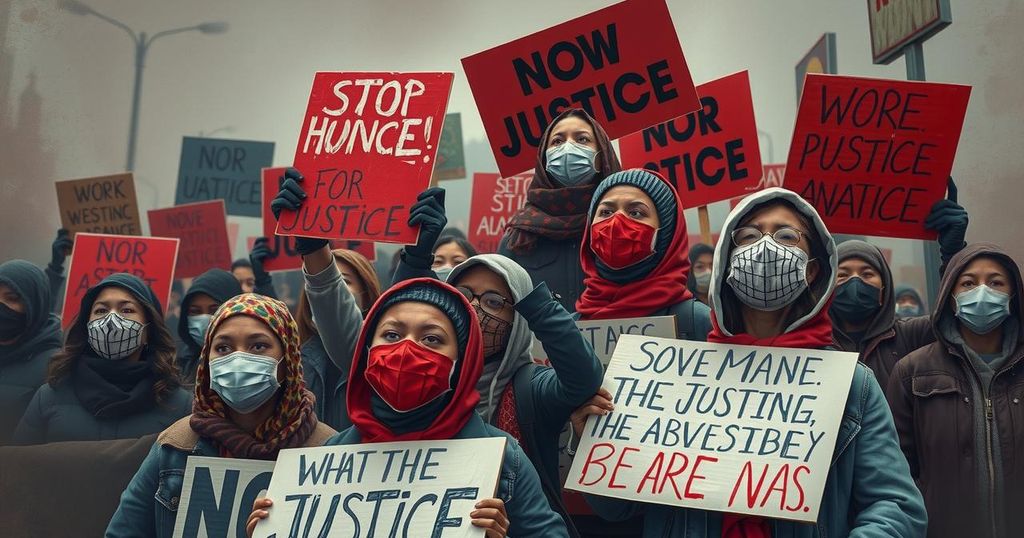Father of Man Shot During Latest Protests in Kenya Calls for Police Accountability

In Nairobi, protests erupted over police shooting of Boniface Kariuki amid unrest over blogger Albert Ojwang’s death. Kariuki remains in critical condition. The police officer involved has been arrested while calls for accountability and justice grow louder among family members and activists. The situation highlights systemic issues with police brutality in Kenya amid past cases of violence against civilians.
In Nairobi, Kenya, family and activists are demanding accountability after a civilian, Boniface Kariuki, was shot at close range by police during recent protests. The protests erupted over the controversial death of blogger Albert Ojwang while in police custody. Kariuki, just 22 years old and a hawker like his father, Jonah Kariuki, remains in intensive care following risky surgery. His father reported that the bullet struck just above his ear, but doctors deemed the surgery a success, saying his heart is still beating.
Eyewitness accounts suggest that Kariuki was simply holding a packet of face masks when he was caught in the middle of chaos between demonstrators and police. Reports indicate he was shot in the head by an officer who obscured his identity with a mask as Kariuki was apparently trying to flee the scene. The police have acknowledged the situation, stating that the involved officer has since been arrested, signaling some level of concern.
Tensions flared particularly on Tuesday, triggered by the death of Ojwang, who was earlier apprehended on accusations of spreading “false information” about a police official via social media. Official reports attributed his death to an accident in jail, suggesting he “hit his head against the cell wall.” Yet, many activists are skeptical of this explanation, fueling further anger and protest.
Protesters have explicitly called for the arrest of Eliud Langat, the police deputy inspector general, who had previously filed a defamation claim against Ojwang. Langat announced that he was stepping aside to cooperate with investigators amidst the unrest. Additionally, there were earlier arrests of two officers from the Central Police Station linked to Ojwang’s case.
In the aftermath of the shooting, Kariuki’s father stated that the officer responsible for injuring his son should face individual consequences for his actions. Okiya Omtatah, a notable Kenyan politician and activist, has joined the calls for prosecution, questioning the reasoning behind police wearing masks during this operation and emphasizing the need for governmental accountability.
The protests have unfortunately turned violent with reports of injuries stemming from clashes; 11 individuals were admitted to a national referral hospital for treatment, with gunshot wounds being part of the reported injuries. The judiciary has assured the public of its commitment to justice in allegations of police brutality, making clear that these cases will not go ignored.
Furthermore, the U.K. embassy in Nairobi joined in urging for a thorough, independent, and transparent investigation into the conduct of the police during the protests. The nation has seen a long history of police misconduct, and recently, President William Ruto promised reforms aimed at curbing such brutality.
Last year’s protests against a finance bill led to shocking instances of abduction and fatalities among activists at the hands of police. Such past traumas heighten concerns among the public about ongoing issues related to police violence and accountability.
As protests in Nairobi escalate following the tragic shooting of Boniface Kariuki, demands for police accountability intensify. The call for prosecution of the officer involved is backed by family members, activists, and even foreign diplomatic entities. The case exposes ongoing issues surrounding police brutality in Kenya, raising questions about justice and transparency within law enforcement. With President Ruto’s promise for reform still echoing, the situation remains tense and under close scrutiny from the public and international observers alike.
Original Source: www.newsday.com







